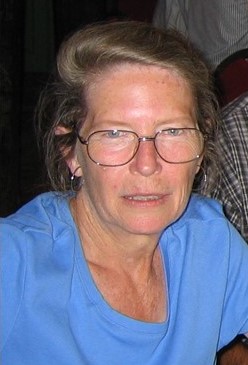Remembering Diane Dawson
Posted on 17 September 2019

We recently received the sad news that Diane Dawson passed away earlier this year, leaving us with fond memories of a talented, warm and lively colleague.
Diane joined the Centre for Health Economics (CHE) in 1997 as a Senior Research Fellow, having been a fellow at Corpus Christi College Cambridge since 1983. She returned to Corpus Christi in 2006 as a tutor and was made a life fellow of the college.
During the time that Diane was at CHE, she made a significant contribution to the health economics community in the UK, challenging her colleagues with her incisive thinking and love of debate. She had an unquenchable intellectual curiosity and an informed opinion on almost any subject: typical conversations would cover world politics, the state of the economy, the campaign for real ale, indeed life, the universe and everything. Her enthusiasm for discussion and intellectual debate was driven by her desire for knowledge and greater insight, which underpinned her strong belief that answers to difficult research and policy issues would emerge from the collective contribution of many different perspectives and views. This meant that Diane never had arguments, but instead always engaging and convivial conversations.
Diane was a hugely talented economist, and made a wide variety of contributions to the health economics literature. Together with other colleagues from CHE and from the National Institute for Economic and Social Research, she was a member of the original research team that won a grant from the Department of Health to devise a new approach to measuring the outputs and productivity of the NHS, which remains the basis for how the health sector is accounted for in the UK national statistics. Her research interests included many other key policy topics such as the evaluation of the London patient choice pilot, the nature of NHS contracting, performance and efficiency, and the role of private finance in the NHS. The latter was a favourite topic of Diane’s and in 2001 she wrote a scathing – but, as always, extremely well-argued and evidenced – critique of the Private Finance Initiative in which she noted that “over £7000 million has been committed to the development and management of major NHS assets by means of PFI contracts on the basis of virtually no evidence as to the likely impact on long-term service delivery.” Her doubts about “… the adequacy of the regulatory regime to deal with the new distribution of power in the supply of public services” were prescient given issues that subsequently emerged in relation to the true costs of PFI in the NHS.
Perhaps the most striking thing about Diane was her intellectual generosity and willingness to spend time supporting colleagues, whether senior or junior, with their research, often bringing them clarity and focus through her knack for applying an economics lens to the questions at hand. She was exceptionally supportive of people in the early stages of their academic careers, evidenced most particularly by the incisive but always constructive comments she offered during seminars and at conference sessions.
Diane was bursting with good research ideas and shared these widely with no hint of ownership or protectionism. It is no surprise then that the reaction of her former colleagues at CHE on hearing of her death was that she had been a huge support, an inspiration and a role model. We remember her as a genuine and lovely person with whom it was a delight to work and to be around. Diane made a significant contribution to health economics and policy research but her legacy also includes the magnificent impact she had on so many of us, her grateful colleagues and friends.
Professor Maria Goddard (Centre for Health Economics)
Professor Andrew Street (London School of Economics and Political Science)

